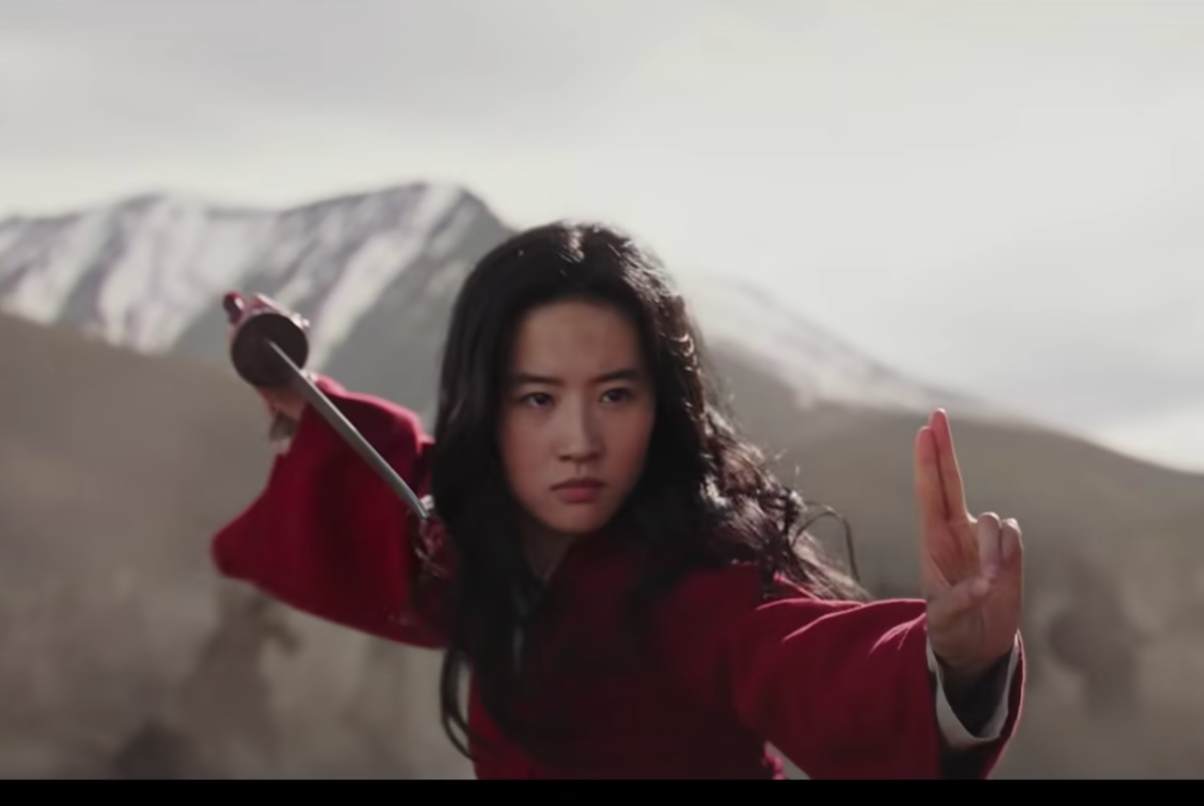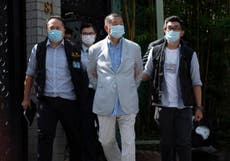The new Mulan film is a political pawn in the fight for freedom and democracy in China – but it’s not helping who you think
We should take heed of the inspirational nature of the tale, writes Rabina Khan


In the climax of Walt Disney’s 1998 animation, the Emperor says to Mulan: “I’ve heard a great deal about you, Fa Mulan. You stole your father’s armour, ran away from home, impersonated a soldier, deceived your commanding officer, dishonoured the Chinese Army, destroyed my palace … and you have saved us all.”
Originating from a fictional Chinese folk story, Mulan’s feisty character ignored tradition and law by disguising herself a male soldier to serve in the Chinese army. The animated 1998 movie showed a young woman of strength and independence, whose fate did not depend on a man. Her courage and bravery spoke volumes to girls, teenagers, and women across the globe, my daughters included – telling them that they could be the hero of their own stories.
When the trailer for the new dramatised Mulan movie was released, like many people from different corners of the world, we waited excitedly to watch the film in the cinema, but it was cancelled due to Covid-19. Lockdown eased and the excitement began to build again in anticipation of watching new releases on live stream and on the big screen.
Nevertheless, the action-based remake of Mulan has been hit by waves of criticism and controversy. The call to boycott the movie, by Hong Kong’s anti-government movement, came about following a tweet by the film’s leading star Liu Yifei’s in 2019, in support of the City’s police. She posted “#IAlsoSupportTheHongKongPolice" followed by a heart emoji.
Would Mulan have endorsed Liu’s words supporting Hong Kong police? The same authorities who are critisised for using violent force and are responsible for human rights abuses against pro-democracy demonstrators. Would she endorse the violent force used on a 12-year-old girl by the Hong Kong police?
#BoycottMulan has been trending on social media.
Mulan faced further outcries when details revealed that scenes from the new film were captured in Xinajiang – the western region in China where the ruling power is allegedly detaining, oppressing, and re-educating millions of Uighur Muslims. Beijing denies these allegations. The film extends its gratitude to two organisations who have facilitated the so called “re-education centres” – the Chinese Communist Party Xinjiang Uyghur Autonomous Region Committee, and the Bureau of Public Security in Turpan.
The writer Jeannette Ng tweeted: “Mulan specifically thank the publicity department of CPC Xinjiang Uighur autonomous region committee in the credits. You know, the place where the cultural genocide is happening. They filmed extensively in Xinjiang, which the subtitles call ‘Northwest China’.”
It’s alleged that in the camps Uighurs and Muslims are forced to adopt Han Chinese culture and work, with slavery being rife, in an attempt to erase the Uighur culture. There are also reports that women are sterilised or forced to undergo abortions, and others have their human organs removed involuntarily. Further allegations claim people are being starved, tortured and sexually exploited.
In a letter to the Chinese Ambassador in Britain from the president of the Board of Deputies of British Jews, Marie van der Zyl compared the Holocaust with atrocities against the Uighurs. This was followed by a statement from 70 faith leaders, including Rowan Williams former Archbishop of Canterbury, in which he said that the Uighurs are facing “one of the most egregious human tragedies since the Holocaust”.
Mulan’s character is a departure from Disney’s traditional depiction of heroines and princesses through her ethnicity, culture, and heroism – the only daughter of an ageing army veteran who challenges gender stereotypes. Mulan’s journey of a daring young woman who saved an empire through its exploration of compelling themes of family, honour, duty and the ever eternal story of how good prevails over evil began with her words in the 1998 animation “I have to do something”.
It was not long before people compared Disney’s legendary Mulan to Agnes Chow, the 23-year-old prominent pro-democracy activist in Hong Kong, who was arrested under a new security law. Upon her release she wrote: “Of the four times I’ve been arrested, this is the most terrifying”.
Disney had originally planned for Mulan to be an animated short entitled China Doll; the protagonist an oppressed Chinese girl who is saved by a British Prince and elopes to the West. However, Director Tony Bancroft envisioned Mulan to be a different Disney heroine; strong, tenacious and independent.
Mulan was originally a heart-warming and inspirational tale, with a message of courage, female empowerment and compassion. Despite reversing stereotypes, it has still managed to become a political statement in support of the Chinese Communist government’s agenda.




Join our commenting forum
Join thought-provoking conversations, follow other Independent readers and see their replies
Comments